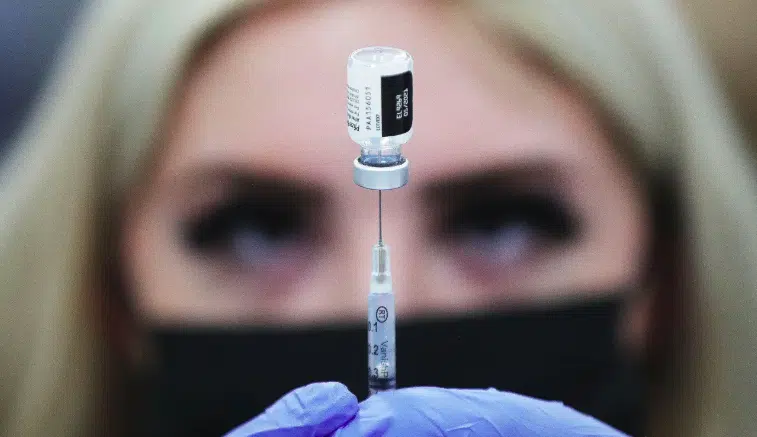A recent report from the Centers for Disease Control and Prevention (CDC) reveals that the latest round of COVID-19 boosters demonstrates approximately 54% effectiveness in preventing symptomatic infection among individuals with normal immune systems. This efficacy is comparable to the effectiveness of the flu vaccine in a typical year. The analysis specifically highlights the effectiveness of the updated vaccine against the XBB.1.5 strain and the JN.1 subvariant, the predominant strain in the United States at present.
The study, which included 9,222 individuals with potential COVID-19 symptoms, revealed that nearly 3,300 of them tested positive for the virus. The effectiveness of the booster shots was calculated by comparing those who had received the booster against those who had not. The findings underscore the significance of the latest COVID shot in providing substantial protection to recipients, particularly in light of the ongoing impact of COVID-19, leading to hospitalizations and deaths each week.
Ruth Link-Gelles, an author of the study and a member of the CDC’s National Center for Immunization and Respiratory Diseases, emphasized that the additional 50% protection against COVID-19 offered by the latest booster is a meaningful increase, especially for individuals at the highest risk. The report aims to contribute valuable insights into the ongoing efforts to combat the virus, emphasizing the importance of vaccination even as cases may be declining in certain communities. While vaccine effectiveness tends to wane over time, health officials stress the significance of continued vaccination efforts to mitigate the impact of COVID-19.
Despite the recommendations for COVID-19 vaccination for individuals aged 6 months and older, the report highlights that only around 22% of U.S. adults and 11% of children have received the latest shots. The slow uptake of vaccinations has contributed to a longer timeline for researchers to gather sufficient data to assess the effectiveness of the booster shots. As the situation evolves, ongoing monitoring and communication of vaccination benefits will be crucial in fostering increased vaccine uptake and protecting public health.

